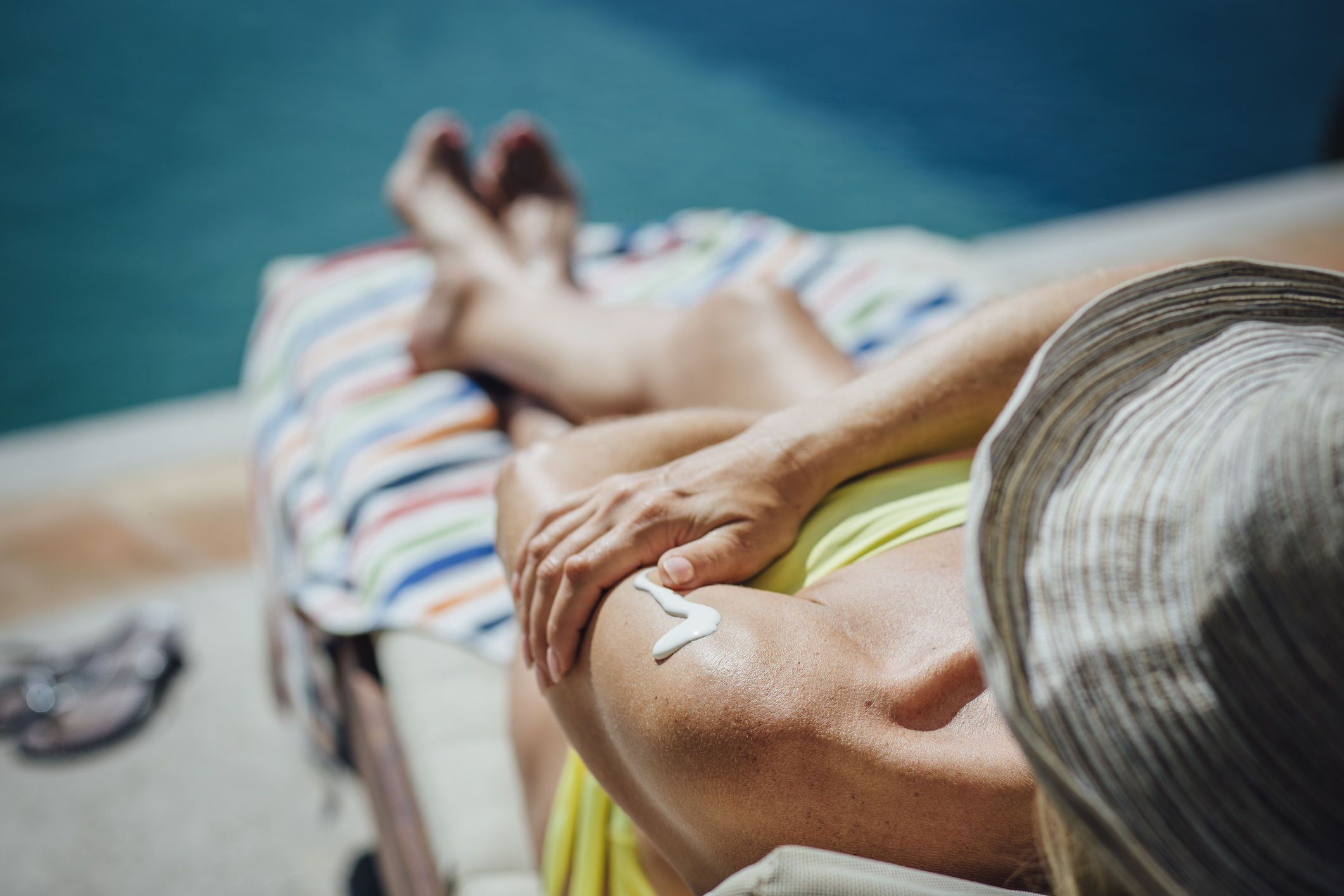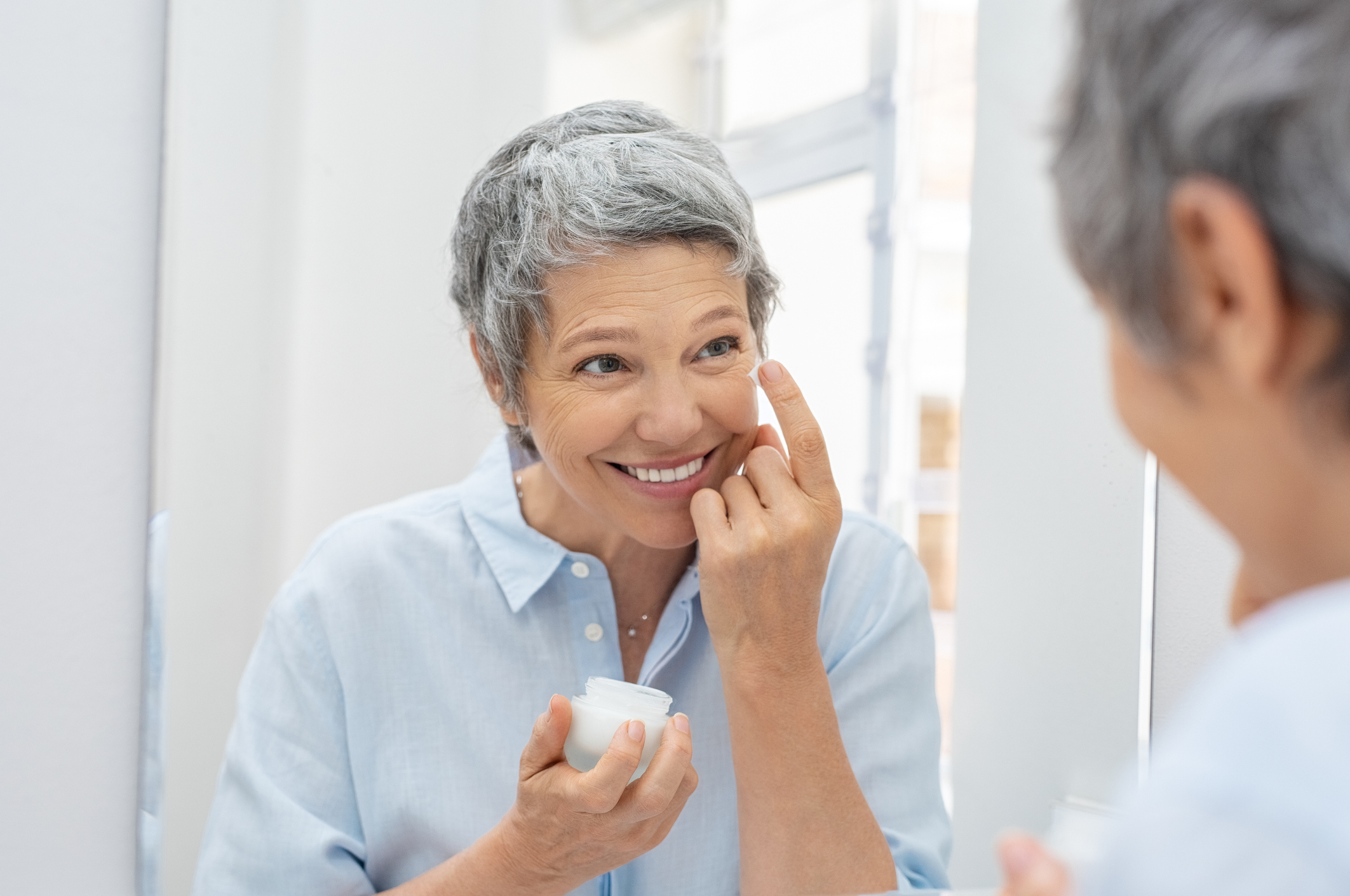How to Manage These 4 Common Skin Changes During Menopause
Leading up to and after your last period, your body experiences a number of changes, from dips in libido to mood swings to insomnia. Most of these are caused by fluctuating and, later, reduced levels of estrogen and progesterone. Unfortunately, these hormonal changes can also have lasting effects on your skin.
Many perimenopausal and menopausal women experience skin changes and challenges they’re not prepared for in their middle age. In order to keep your skin looking clear and healthy, you’ll want to use preventative care and targeted remedies for these common menopause skin problems.
Adult acne
During perimenopause, your hormones will begin to fluctuate like they first did during puberty. Unfortunately, this causes some women to experience symptoms similar to those of puberty, including acne.
Hormonal acne often appears around the chin and jawline, but it can spread to other areas of the face. To treat this acne, avoid using harsh acne products, since they can damage drier, thinner skin. Choose a face wash with salicylic acid, which helps control breakouts, and keep skin moisturized. Frequent acne flare-ups or skin irritation might need to be addressed by a dermatologist.
Dark spots
After menopause, women’s skin tends to become thinner and drier due to a lack of estrogen. Unfortunately, this allows dark spots like bruises and sun damage to show up more easily.

To protect your skin, you should apply a body or face-appropriate sunscreen every day. Aim to use SPF 30 or higher for adequate protection and apply it all over your face, ears, neck and other areas of exposed skin. Not only will sunscreen help prevent new dark spots from forming, but they can help lighten existing ones by preventing the sun from hampering the skin’s ability to shed damaged cells.
In some cases, dark spots may indicate skin cancer—a problem menopausal women are at higher risk for. If you’re concerned about a spot or have a spot that appears to be growing, speak with your doctor or a dermatologist to screen the spot for cancer. Catching these problems early is crucial for effective treatment.
Dryness
As you age, your skin loses its ability to retain water. For most women, this leads to excessively dry skin. The skin on your face might be the most noticeable, but other areas of your body might be affected, as well.
One of the best ways to treat this problem is to apply a moisturizer to your face, neck and other dry areas. Moisturizing after washing your face or bathing can combat moisture loss caused by hot water, but you can also apply a little throughout the day as needed.
Avoid using drying soaps or face washes that strip your skin of its natural oils. Instead, a cleanser for sensitive skin followed by a thick moisturizer formulated with glycerin can be helpful in combatting dry skin. Avoid using lotion formulated with alcohol, and don’t use body lotion on your face, since these products are often too heavy for delicate facial skin.
Wrinkles
Collagen, the most abundant protein in your body, helps support your skin, muscles, ligaments and tendons by bolstering the strength of connective tissues. Over time, the body loses its ability to produce as much collagen as it did when you were younger. This makes it difficult for your body to replace the collagen that naturally breaks down.

Collagen loss often results in the appearance of sagging skin, wrinkles and bags under the eyes. Taking collagen supplements may help your body build more collagen and reduce the appearance of fine lines and wrinkles, resulting in firmer skin.
Additionally, sun protection, moisturizers and retinol products may all play a role in smoothing wrinkles for a more youthful appearance.
Protect your skin through proactive treatment
Generally healthy choices can also help protect the skin and combat common skin issues during menopause. The right combination of vitamins and minerals, lots of water, proper stress relief and good sleep can contribute to healthy, youthful-looking skin well after your last cycle. Quitting smoking and avoiding alcohol can also help keep skin hydrated and healthy.
If you haven’t approached menopausal age quite yet, now is a great time to start fighting off these skin problems early. Emphasizing skin protection and skincare at a young age can prevent the appearance of wrinkles, sun damage and skin imbalances. Take care to wear sunscreen any time you’re outside—even if it’s cloudy—eat well, use gentle products on your skin and avoid unhealthy habits. By keeping your skin healthy now, you’ll ensure it stays that way as you age.


Leave a comment